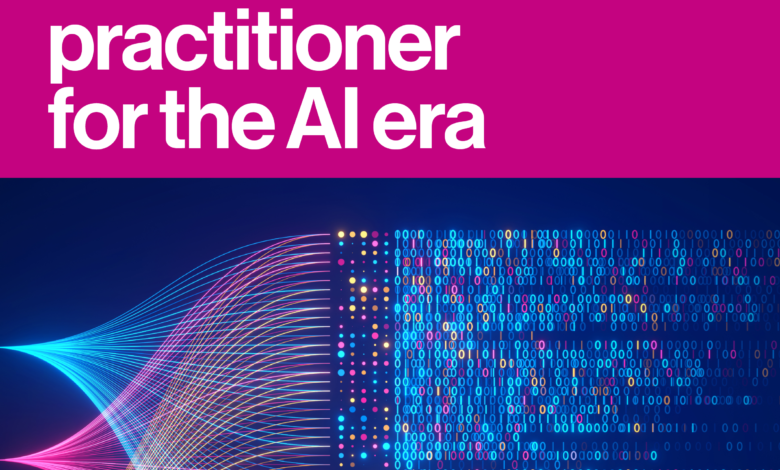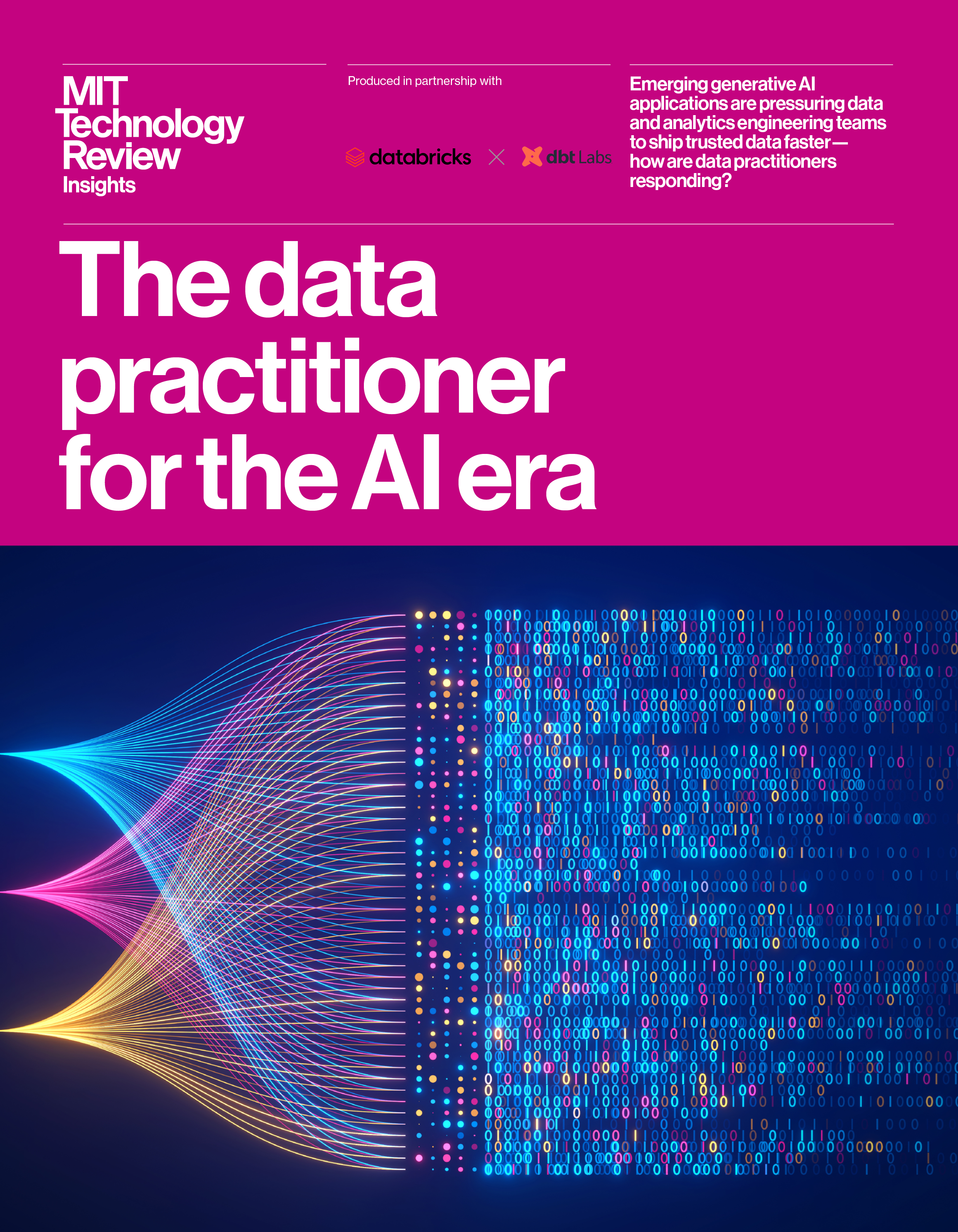The data practitioner for the AI era – MIT Technology Review

Emerging generative AI applications are pressuring data and analytics engineering teams to ship trusted data faster—how are data practitioners responding?
The rise of generative AI, coupled with the rapid adoption and democratization of AI across industries this decade, has emphasized the singular importance of data. Managing data effectively has become critical to this era of business—making data practitioners, including data engineers, analytics engineers, and ML engineers, key figures in the data and AI revolution.
Organizations that fail to use their own data will fall behind competitors that do and miss out on opportunities to uncover new value for themselves and their customers. As the quantity and complexity of data grows, so do its challenges, forcing organizations to adopt new data tools and infrastructure which, in turn, change the roles and mandate of the technology workforce.
Data practitioners are among those whose roles are experiencing the most significant change, as organizations expand their responsibilities. Rather than working in a siloed data team, data engineers are now developing platforms and tools whose design improves data visibility and transparency for employees across the organization, including analytics engineers, data scientists, data analysts, machine learning engineers, and business stakeholders.
Don’t settle for half the story.
Get paywall-free access to technology news for the here and now.
Subscribe now
Already a subscriber?
Sign in

This report explores, through a series of interviews with expert data practitioners, key shifts in data engineering, the evolving skill set required of data practitioners, options for data infrastructure and tooling to support AI, and data challenges and opportunities emerging in parallel with generative AI. The report’s key findings include the following:
- The foundational importance of data is creating new demands on data practitioners. As the rise of AI demonstrates the business importance of data more clearly than ever, data practitioners are encountering new data challenges, increasing data complexity, evolving team structures, and emerging tools and technologies—as well as establishing newfound organizational importance.
- Data practitioners are getting closer to the business, and the business closer to the data. The pressure to create value from data has led executives to invest more substantially in data-related functions. Data practitioners are being asked to expand their knowledge of the business, engage more deeply with business units, and support the use of data in the organization, while functional teams are finding they require their own internal data expertise to leverage their data.
- The data and AI strategy has become a key part of the business strategy. Business leaders need to invest in their data and AI strategy—including making important decisions about the data team’s organizational structure, data platform and architecture, and data governance—because every business’s key differentiator will increasingly be its data.
- Data practitioners will shape how generative AI is deployed in the enterprise. The key considerations for generative AI deployment—producing high-quality results, preventing bias and hallucinations, establishing governance, designing data workflows, ensuring regulatory compliance—are the province of data practitioners, giving them outsize influence on how this powerful technology will be put to work.
This content was produced by Insights, the custom content arm of MIT Technology Review. It was not written by MIT Technology Review’s editorial staff.




